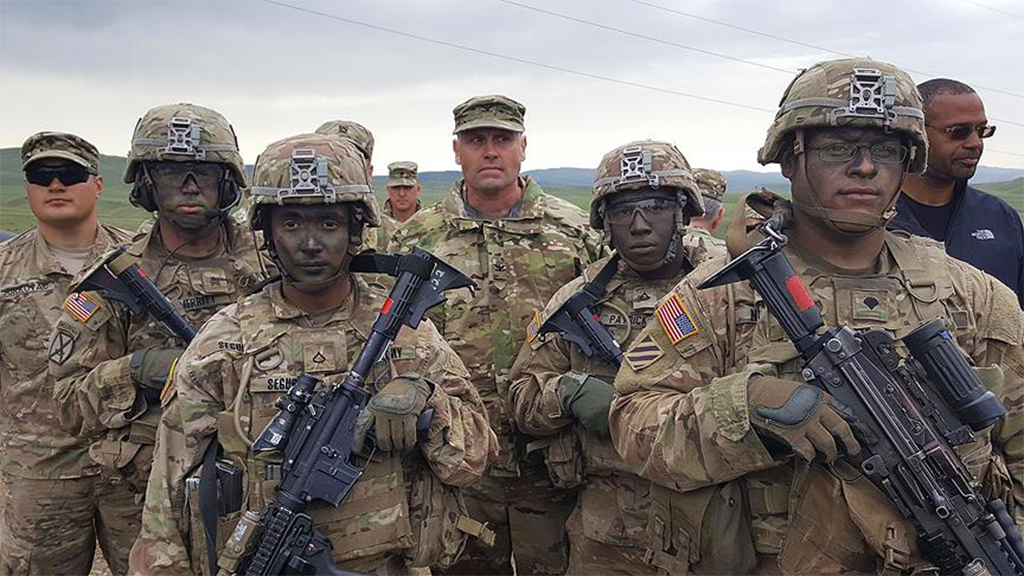
How to understand US stance on Operation Olive Branch
What does the U.S. really want in Syria?
Share
What does the U.S. really want in Syria? How do American officials see the Syrian civil war and the most recent developments in the Middle East? Does the U.S. fight against international terrorism or fight for the protection of human rights? Does it intend to end the catastrophic civil war and the loss of civilian lives in Syria? Does the U.S. try to limit the power of regional countries such as Turkey and Iran in a way so they will not to be able to undertake any initiative or prevent any regional project initiated by global powers? Or, does the U.S. aim to create a regional atmosphere in which no regional state can contribute to the creation of a stable regional system or even pursue an independent regional foreign policy?
The most recent developments in Syria, in the northern part of the country in particular, demonstrate that the U.S. plays a multi-dimensional game. Nobody knows what the U.S.'s short- and long-term interests are in Syria. There is confusion among politicians and bureaucrats and one of the main reasons for this is related to domestic American politics. Especially with President Donald Trump and his administration, the friction between the Pentagon, the State Department and the White House has increased steadily. As a result the U.S. leadership does not have a clear-cut political position on Middle Eastern actors.
Another reason is the loss of flexibility in American foreign policy behavior. Currently, the U.S. is unable to adapt to the changing conditions worldwide. The end of political ideologies with the end of the bipolar world system has left the U.S. without a concrete other, and had to create the other within an amorphous threat of international terrorism. In light of this, the American strategy in the Middle East prioritizes these terrorist groups. However, the U.S. and other global powers, intentionally or not, pursue policies that directly contribute to the emergence of terrorist groups in the region.
Furthermore, the U.S. has been alienating most of its old allies and partners, such as Turkey. Both former President Barack Obama and Trump's administrations follow a regional policy that conflict with Turkey's national interests. The U.S. remains indifferent to and even damages Turkey's national interests.
In Syria, the U.S. wasted Turkey's time and energy by not actively supporting the Syrian opposition. While the U.S. promised Ankara that it would support the Syrian opposition against Bashar Assad, it did not materialize, but tried to choose the most convenient group for them to support – the Democratic Union Party (PYD) and it's People's Protection Units (YPG) militia, the Syrian affiliate of the PKK, which is considered a terrorist organization by both Turkey and the U.S. In spite of Ankara's warnings and strong opposition, the U.S. insistently claimed that its cooperation with the YPG is temporary and for the fight against Daesh only.
However, this was not the case. The U.S. continued to support the YPG even in a post-Daesh Syria. Today, Daesh has lost its territory in Syria, but the U.S. plans further cooperation with the YPG as part of its mid- and long-term strategies in the Middle East. The U.S. did not keep its promises about redlines declared by Ankara. The first redline was the YPG crossing West of the Euphrates and the city of Manbij and its surroundings. Another redline was the use of U.S. weapons against Turkey and the last was attacks in Turkey or illegal border crossings. The YPG violated all these redlines and the U.S. ignored the developments.
At the end, today it is not right for the U.S. to oppose Turkey's Operation Olive Branch in Afrin. Turkey employs the legitimate right of self-defense, as framed by Article 51 of the U.N. Charter. Turkey has demonstrated that it will not remain indifferent to any detrimental developments in Syria that would threaten Turkey's vital interests such as the case in Afrin.
[Daily Sabah, 24 January 2018]
Tags »
Related Articles








